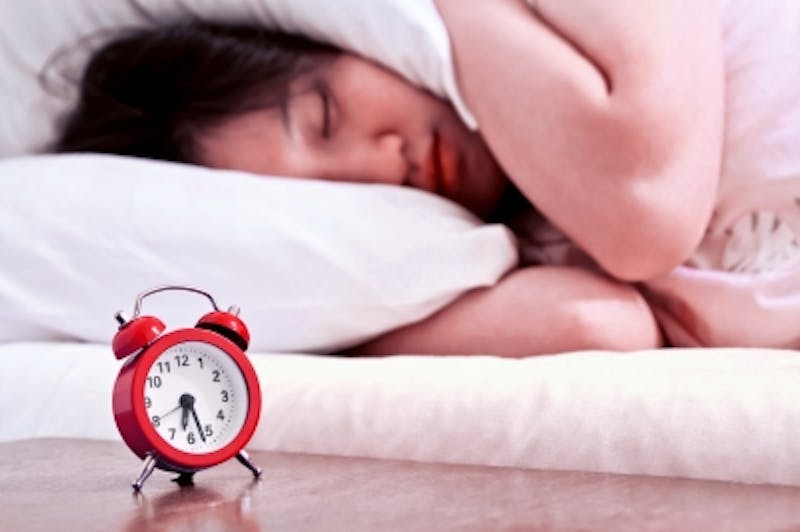
When you’re feeling sleepy at the office, you might be tempted to reach for a cup of coffee and a sugary snack from the vending machine for a little pick-me-up. When the clock strikes five, you may skip the gym and stop at the drive-thru on the way home because you’re just too dang tired to even think about cooking. You end up sinking into the couch with a cheeseburger in one hand and the remote in the other. Even though you were sure you were going to pass out as soon as your butt hit the chair, suddenly you can’t sleep.
If this cycle sounds familiar, your sleep pattern may be to blame. On the surface, the connection between sleep and weight loss seems obvious. When you don’t get enough sleep, your energy dwindles and you reach for a comfort food, like potato chips, or some coffee or soda. The immediate result is a quick burst of energy, but the longer-term effect is unwanted pounds, more sleep loss, and negative health consequences.
Sleep and Weight Loss
When you’re sleep deprived, your metabolism suffers and your hormones go out of whack — two physiological processes that are essential for weight loss. Sleep deprivation ups the body’s production of ghrelin, a hormone that signals when it is time to eat. To make matters worse, when the body doesn’t get enough sleep, it reduces production of leptin, the hormone that tells your brain that your belly is full. This combination of effects can spell disaster for your weight loss plan.
Although the exact amount of sleep you need is based on different personal factors, most people need about 7.5 hours of shut-eye a night. Increasing that won’t magically help you lose weight, but if you are sleep-deprived, getting seven hours a night helps boost your metabolism and helps you shed pounds.
If you aren’t getting enough quality sleep at night, it is time to make a change. Follow these tips to start giving your body the rest it needs.
Skip the Caffeine
It’s fine to start your day with a cup of joe, but skip caffeine in the afternoon. When you down caffeinated drinks after about 2pm, your body stays stuck in sleep’s lighter stages at night instead of getting the deeper rest it needs.
Get Exercise
Physical exercise can boost the quality of your sleep, and it doesn’t matter much when you do it. Aim to get at least one hour of exercise each day to sleep better at night.
Forego the Midnight Snack
If you are about to hit the sheets, stay away from midnight snacks, especially things like pizza or chicken wings. These fatty, greasy foods can cause heartburn and keep you up. If your stomach is grumbling close to bedtime, opt for a lighter snack, like a cup of low-fat cottage cheese or an apple. If battling bedtime cravings is a regular issue for you, try Crave-a-Way to conquer the temptation.

